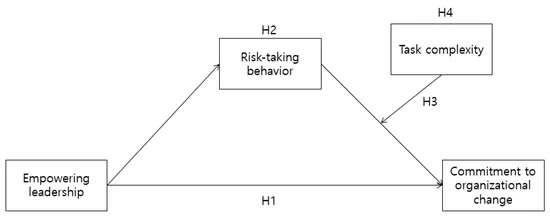4 Dimensions of Emotional Intelligence for Students
Emotional intelligence is different from general or common intelligence. It’s the ability of an individual to monitor their own emotions, to monitor the emotions of others, to understand the differences between them, and to use all of this information in order to guide their actions. This is about accurately understanding the emotions of oneself and others, as well as expressing emotions in a way that’s accessible.
A high level of emotional intelligence is an essential aspect of learning. The ability to develop the skill of emotional understanding is a driver not only in the realm of relationships but also in the realm of education. The following four dimensions of emotional intelligence can help teachers and administrators to better understand and support student learning.
- Understanding
This is the foundation of emotional intelligence, understanding one’s own emotions. Understanding is the beginning point of any emotional process, and in fact of any endeavor at all. In order for students to be able to focus on their academic work, they have to be able to see where their emotions even are. Often children don’t have the self awareness to know what they’re feeling, and don’t see the drivers of their actions. It takes time and practice to take apart the emotions and to learn to make sense of what one is feeling, particularly during adolescence when emotional lives are especially complex.
This first step of understanding their own emotions is what allows all of the other dimensions to be built upon. Discerning what they’re feeling steps them onto the right path for emotional growth and development, which will lead to better behavior, more focus, and better academic outcomes. Kids have to learn that emotions come and go like the waves of the ocean, and that they can observe this ebb and flow just by stepping back from it.
- Management
The next dimension is a much more difficult one to come to terms with, particularly for students who have never had the skill of emotional management fostered. It’s this learning how to manage one’s own emotions will allow students to not only see the ebb and flow of their emotions, but to alter their reactions to it. Management of emotions is tied closely to self control, in which a child learns to delay their own gratification in support of their future success. Emotional management is challenging for all of us, not just for children. But the waves of emotion can be, if not controlled completely, then at least tamed.
The ability to manage emotions is essential for classroom success, where students must learn how to interact reasonably within the academic environment while focusing on learning. Students with low emotional control react in a negative toward proposed changes, as they are not equipped to deal effectively with emotionally stressful events, like testing or projects. On the other hand, students who are able to effectively manage their emotions tend to be optimistic and to take the initiative, reframing their understanding of stressful events as exciting.
- Empathy
Perhaps the key to happiness and to lifelong success is understanding others’ emotions, or empathy. The application of empathy in the educational environment is tremendous. Empathy extends to an understanding of history and literature, music and art, and even science and math. That ability to put oneself into the emotional body of another person is how children can become excited about the possibility of making a new discovery in science, or why a historical figure did the things that they did. This is particularly applicable for children who come from a disadvantaged background, and need to learn the skill of empathy in order to become emotionally driven toward success.
Empathy can be built through the observation of others, then thinking deeply about why people behave and react in the ways that they do, and finally identifying the behaviors that are either helpful or detrimental in challenging situations. The ability to understand other people’s emotions, persuasions, motivation, conflict resolution mechanisms, and reasons for cooperation are probably the skills most essential for success in education and in the life that will come beyond the classroom.
- Relationships
There are so many dimensions to relationships in the school environment. Once a child develops the skill of empathy, they then need to channel that into positive relationships with other students, with teachers, with administrators, with parents and finally with themselves. Trust is an essential component of healthy relationships, as it allows students to see where they can improve without becoming self-critical or defensive. Trust fosters smooth and productive relationships with teachers and with peers. Emotional elements are the driving forces behind so much of the modern educational environment, and the role of relationships should be considered when creating policies, process and procedures within the school environment. Relationship building enables schools to boost their performance and is essential to making schools work.
The positive reinforcement of an emotionally intelligent environment enhances the school environment, helping students to find not only academic success, but also life success outside of the classroom.






